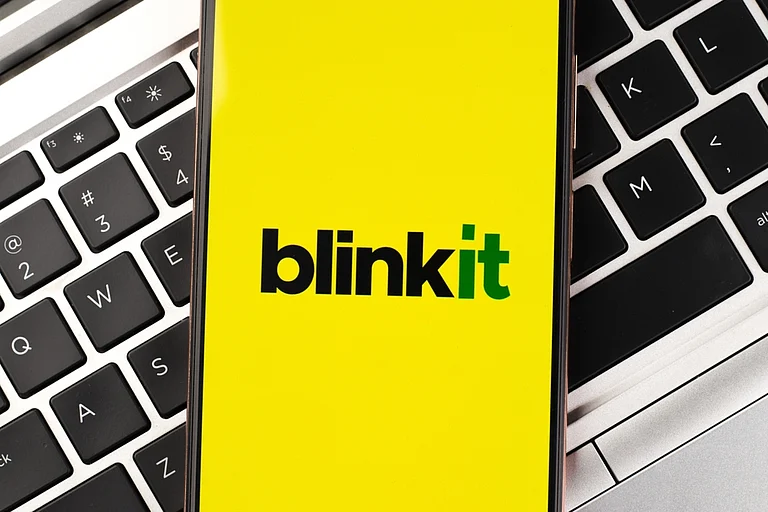The rise of the delivery-led gig economy, fuelled by platforms, such as Swiggy, Zomato, Uber, Amazon, and so on, has significantly altered the workforce dynamics of India. With over seven million gig-delivery workers today – a number which is expected to surge to 25 million by 2030, this segment of the workforce is growing at an impressive compounded annualised growth rate (CAGR) of nearly 12 per cent, according to data from the Niti Aayog.
This brings to light the question, how do such gig delivery workers fare financially? Are they aware of taxes? What is their income range? And what is their investment and savings outlook?
A recent study by Borzo (formerly WeFast), a global same-day delivery company states that around 78 per cent of gig delivery workers earn less than Rs 2.5 lakh annually. While 61 per cent claim that they are not aware of income tax brackets, 65 per cent say they do not have a life insurance.
In a report titled Understanding The Financial Literacy Of Gig Delivery Partners, Borzo surveyed over 2,000 gig delivery workers across 40 cities in India, including Tier-I and Tier-II cities, such as Mumbai, Delhi, Bengaluru, Hyderabad, Jaipur, etc., and Tier-III towns such as Pimpri Chinchwad, and Rae Bareli, among others.
How Much Are Gig Delivery Workers Earning
The survey found that a majority of gig delivery workers, around 77.6 per cent, earned less than Rs 2.5 lakh per annum, while 20 per cent reported income in the range of Rs 2.5 lakh - Rs 5 lakh. Only a miniscule 2.6 per cent reported income above Rs 5 lakh, but below Rs 7.5 lakh. The income data was gathered from delivery workers across multiple platforms, such as Porter, Delhivery, Ola, Zomato, Swiggy, and Shiprocket.
Tax Awareness And Compliance: A Glaring Gap
Alarmingly, around 61 per cent of gig delivery workers said that they are unaware of income tax brackets. This lack of awareness points to the low rate of tax compliance, wherein 66.5 per cent of respondents said they have never filed an income tax return (ITR).
Among those who have filed ITRs, 66 per cent said they submitted nil returns, while the remaining 34 per cent filed self-assessment returns. A significant portion of those who filed their taxes, around 47 per cent, paid advanced tax amounts in regular instalments, while 53 per cent said they opted for a one-time payment.
Tax Amount:
75% said they have not paid any tax;
20% said they have paid taxes in the range of Rs 12,500-25,000
4.6% said they paid taxes in the range of Rs 50,000-75,000
Interestingly, around 42 per cent of respondents among the non-ITR-filing segment said they are willing to pay taxes if they fall into a tax bracket, however, 58 per cent are not willing to pay taxes despite falling in the bracket.
Investment Habits: Playing It Safe, Or Not At All!
When it comes to investments, the majority of gig workers seem to be either risk-averse or not into investing at all. The survey found that around 77 per cent of respondents did not invest in mutual funds and 74 per cent avoided the stock market altogether.
Among the 23 per cent of gig delivery workers who invested in mutual funds, 71 per cent made a monthly systematic investment plan (SIP) in the range of Rs 500-1,000. About 10 per cent invested in the range of Rs 1,000-2,000 and around 12 per cent invested in the range of Rs 2,000-3,000 in monthly SIPs.
The survey found that only a small 4 per cent invested in the range of Rs 3,000-5,000, with only 3 per cent saying they had surplus funds to invest anything above Rs 5,000 in mutual funds.
Long-term savings also presented a challenge for them, with only 24 per cent of gig workers utilising Public Provident Fund (PPF) accounts to invest for retirement. Majority of those who invested in PPF, invested anything between Rs 1,000 and Rs 3,000 per month.
Life Insurance: A Critical Overlook
Perhaps the most alarming statistics from the Borzo report was that 65 per cent of gig delivery workers did not have life insurance cover. This lack of coverage exposes workers and their families to significant financial risk in the event of an accident or death. The absence of life insurance also highlights a broader issue of not just financial foresight, but also risk management behaviours where urgent financial pressures overshadow the need for long-term and reliable security.
“Addressing these identified financial literacy gaps is paramount, not only for the well-being of gig workers, but also for their financial resilience,” said Eugene Panfilov, managing director, Borzo India and regional director, Borzo Brazil.
The survey further shed light on the importance of guiding millions of gig delivery workers in India regarding various investment tools, such as mutual funds, stocks, and PPF, while also knowing the necessity of safeguarding their families financially by taking life and health insurance covers.













